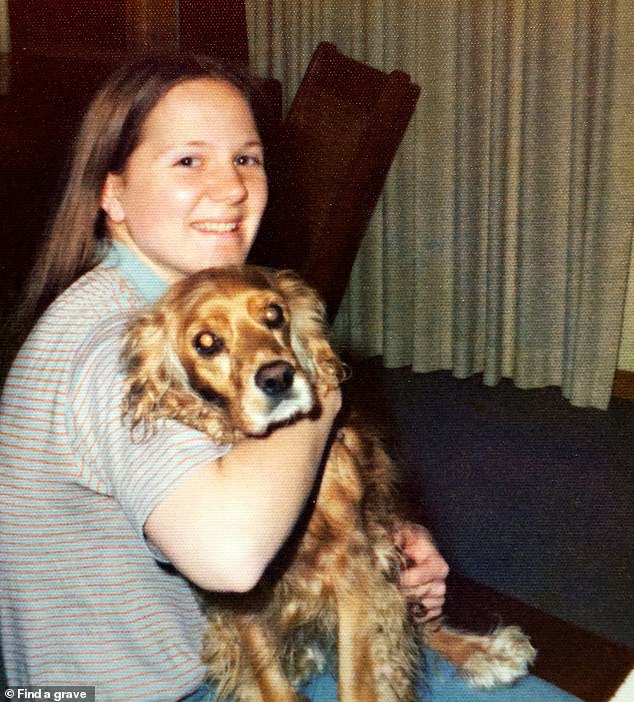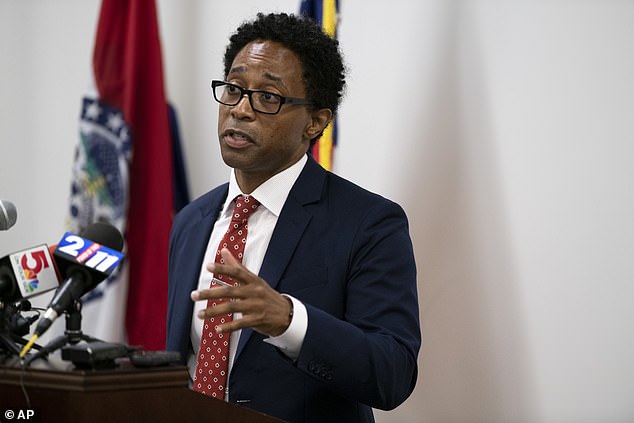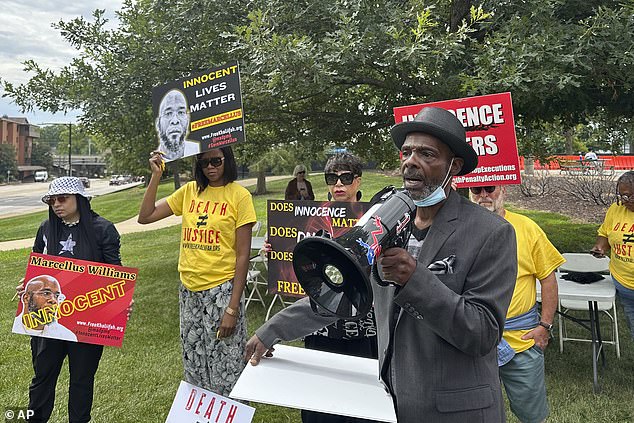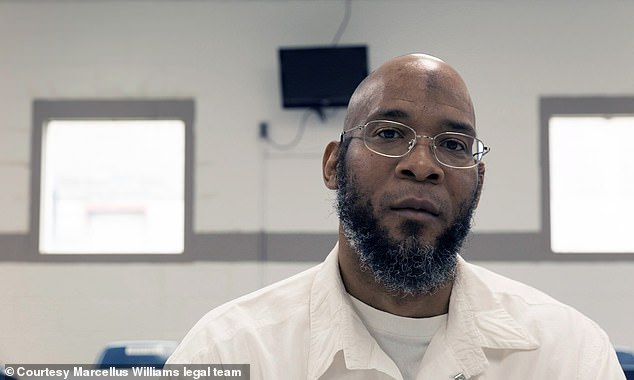A Missouri death row inmate who has long maintained his innocence in a 1998 murder is making a final plea for a stay of execution.
Attorneys for Marcellus Williams, 55, who was convicted in 2001 of first-degree murder in the death of former newspaper reporter Felicia Gayle, have asked the U.S. Supreme Court to stop his death by lethal injection scheduled for Sept. 24.
They argued in court papers that Williams’ right to due process was trampled when Missouri Republican Gov. Michael Parson abruptly ended an investigation into Williams’ case.
His predecessor, former Gov. Eric Greitens, had indefinitely stayed Williams’ execution and formed a board of former judges to review his case and determine whether Williams should be granted clemency.
The board investigated Williams’ case for the next six years, but it is unclear whether it reached a verdict before Parson suddenly disbanded it.
Marcellus Williams, 55, is scheduled to be executed on Sept. 24 for the 1998 murder of former newspaper reporter Felicia Gayle.
“The Governor’s actions have violated Williams’ constitutional rights and created an exceptionally urgent need for the Court’s attention,” the attorneys argued in the petition.
Williams’ attorneys noted that even the St. Louis County District Attorney’s Office announced earlier this year that there were constitutional errors in Williams’ original trial, including the removal of a potential black juror because of his race.
“These would be key issues for the Board of Inquiry to consider in recommending clemency rather than execution, had the Governor not wrongfully dissolved the board,” the petition says.
Williams had previously filed a civil action challenging Parson’s dissolution, and a trial court ruled that the governor exceeded his authority under state law and deprived Williams of his due process rights. according to the St. Louis-Post Dispatch.
But the Missouri Supreme Court disagreed, holding that prisoners do not have due process rights in clemency proceedings, prompting Parson to set Williams’ execution date for Sept. 24.

His lawyers now argue that Missouri Gov. Michael Parson trampled on Williams’ due process rights by dissolving a board that was reviewing his case.
His lawyers and supporters are now using all available options to try to stop the 55-year-old’s execution.
In addition to the petition to the U.S. Supreme Court, the St. Louis County District Attorney’s Office announced Monday that it will appeal to the Missouri Supreme Court a judge’s ruling upholding the conviction and death sentence.
The next day, Williams’ legal team also announced that it had filed a motion asking the Missouri Court of Appeals to reconsider its 2010 denial of Williams’ claim that a trial prosecutor unconstitutionally removed black potential jurors because of their race.
Any of the three courts can stay Williams’ execution to give judges more time to review the claims.

Prosecutors at Williams’ original trial claimed Williams broke into Gayle’s home on Aug. 11, 1998, and stabbed her 43 times with a butcher knife before stealing her purse and her husband’s laptop.
Prosecutors at Williams’ original trial said Williams broke into Gayle’s home on Aug. 11, 1998, heard water running in the shower and grabbed a butcher knife.
When she came downstairs, Gayle was stabbed 43 times and her purse and husband’s laptop were stolen.
Authorities said Williams then stole a jacket to hide the blood on his shirt, prompting his girlfriend at the time to ask him why he would wear a jacket on a hot day.
That girlfriend later reported that she saw the stolen laptop in Williams’ car and that he sold it to a neighbor a day or two later.
Prosecutors also cited testimony from Henry Cole, who shared a cell with Williams in 1999 when Williams was in prison on unrelated charges.
Cole told prosecutors that Williams confessed to the murder and provided details about it.
But defense attorneys countered by saying that both Williams’ girlfriend and Cole had been convicted of felonies and wanted a $10,000 reward for information about Gayle’s death.

St. Louis County District Attorney Wesley Bell cited concerns about DNA evidence on the butcher knife when he requested a hearing to question Williams’ guilt earlier this year.
Questions have since arisen about the integrity of that trial, which led to Williams’ conviction, and Democratic St. Louis County District Attorney Wesley Bell cited concerns about DNA evidence on the butcher knife when he requested a hearing to question Williams’ guilt earlier this year.
He said evidence indicated there was someone else’s DNA on the murder weapon.
But just days before the Aug. 21 hearing, new evidence showed that DNA evidence was damaged because members of the prosecution touched the knife without gloves before the original 2001 trial.
Attorneys for the Midwest Innocence Project then reached a deal with prosecutors under which Williams would plead guilty to first-degree murder in exchange for a new sentence of life in prison without parole.
Judge Bruce Hilton signed the agreement, as did Gayle’s family.
But at the urging of Republican Attorney General Andrew Bailey, the Missouri Supreme Court blocked the deal and ordered Hilton to proceed with an evidentiary hearing.
The judge then ruled on Sept. 12 that the first-degree murder conviction and death penalty would stand.
“(Williams’) remaining evidence amounts to nothing more than rehashed arguments about evidence that was available at trial and that was involved in Williams’ unsuccessful direct appeal and post-conviction challenges,” Hilton ruled.
“There is no basis for a court to find Williams innocent, and no court has ever reached such a conclusion,” he continued.

Activists press Gov. Parson to stay Williams’ execution next week
Still, Parson’s office is being inundated with requests to stay Williams’ execution.
The NAACP, for example, wrote to the governor arguing that the death penalty has historically been “applied in a racially disparate manner,” particularly in Missouri.
“Killing Mr. Williams, a black man who was wrongfully convicted of killing a white woman, would amount to a horrific miscarriage of justice and a perpetuation of the worst of Missouri’s past,” wrote NAACP President and CEO Derrick Johnson and Missouri State Conference President Nimrod Chapel Jr.
U.S. Rep. Cori Bush also sent her own letter to Parson, urging him to stop Williams’ execution.
“As legislators, we are committed to building a Missouri that is a beacon of justice, and we strive daily to represent the needs and demands of Missourians across the state,” he said. he wrote in a shared letter to X.
‘For this reason, we urge you to immediately commute Mr. Williams’ sentence and halt his execution.’
He then highlighted the efforts Williams’ lawyers have made to prove his innocence and said executing him would be a “grave injustice and cause serious and lasting harm.”
A spokesman for Parson said attorneys from the governor’s office have met with Williams’ legal team and that the governor will announce a decision at a later date, typically at least a day before the scheduled execution.
But Parson, a former county sheriff, has been in office for 11 executions and has never granted clemency.
If Williams were to die by lethal injection next week, his death would mark the third execution in Missouri this year alone, and the 14th nationwide.
(tags to translate)dailymail

